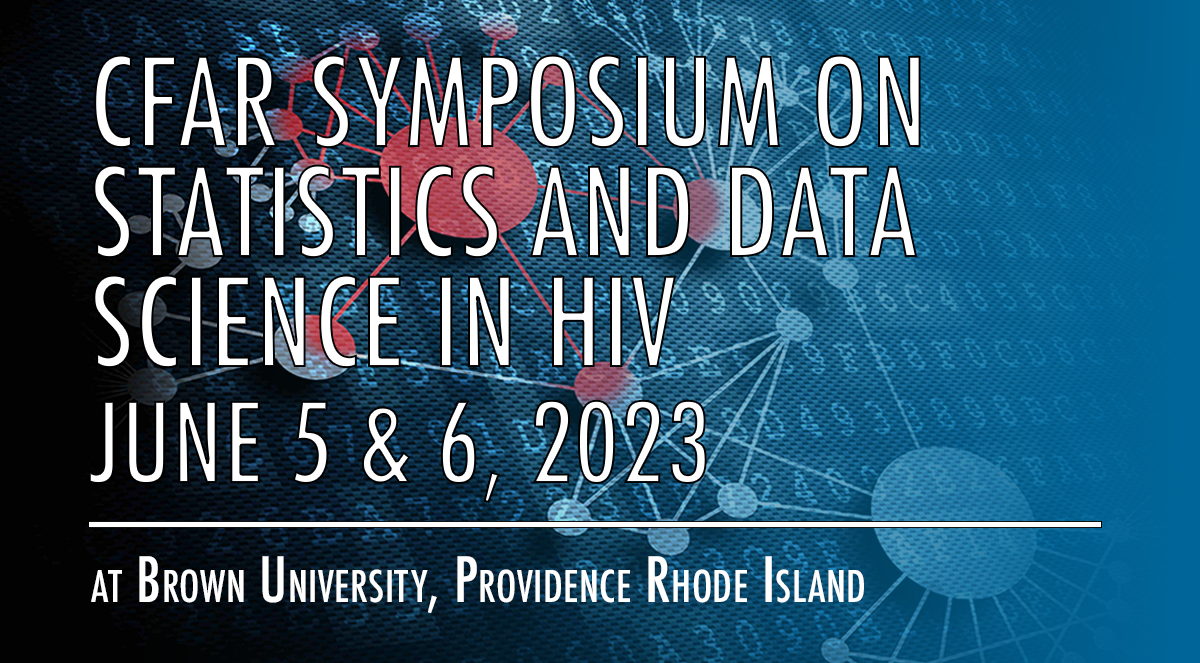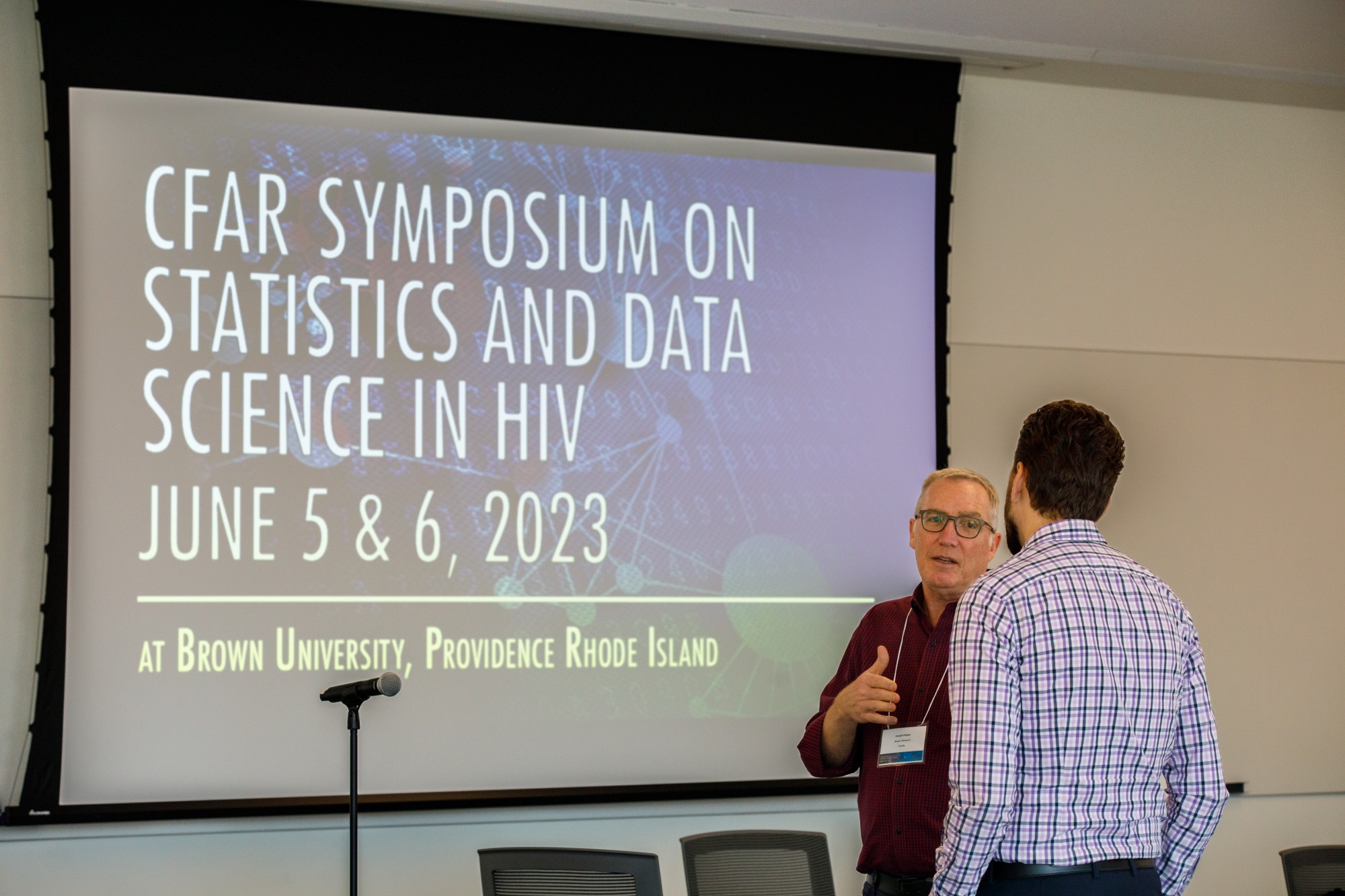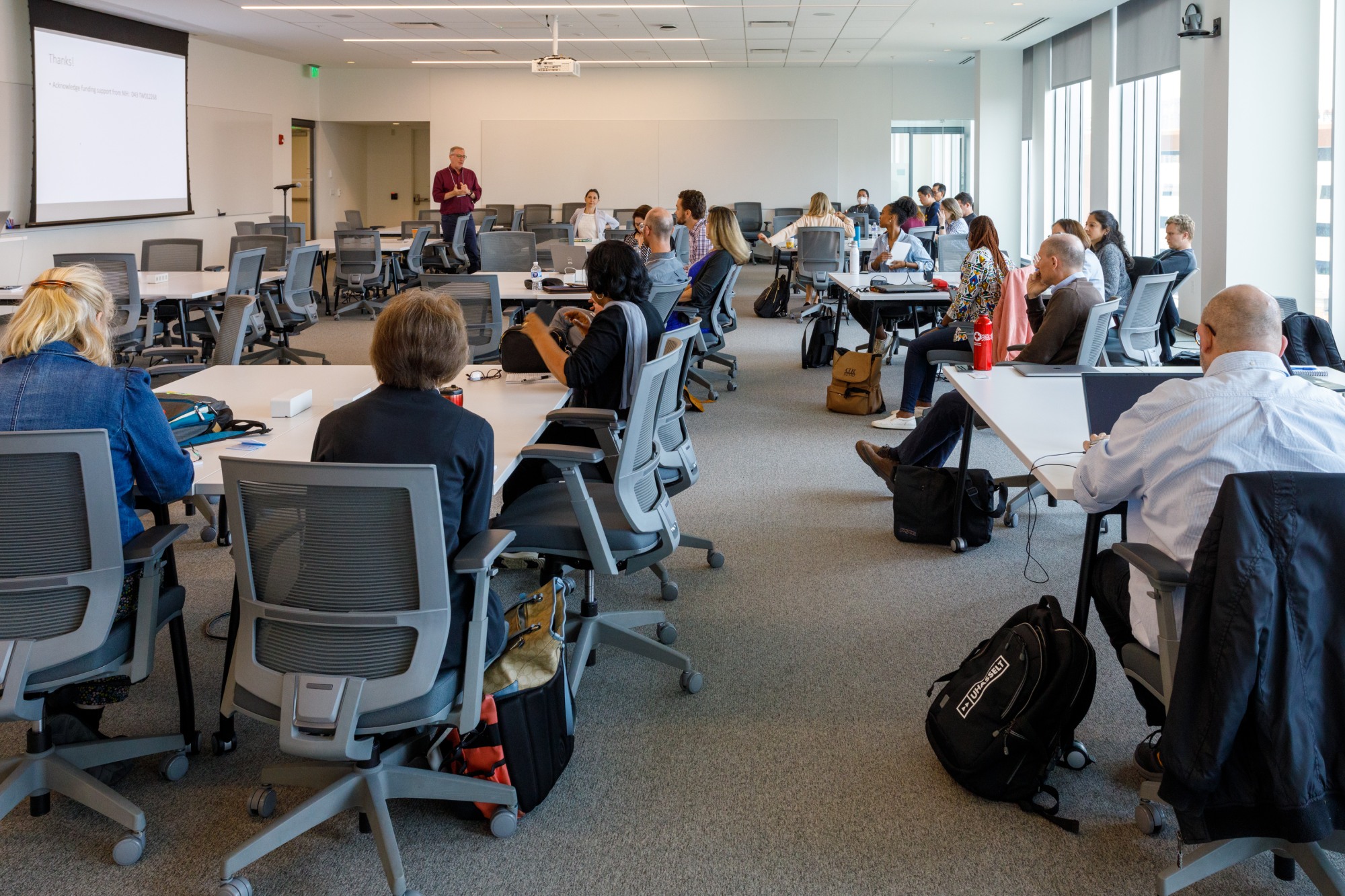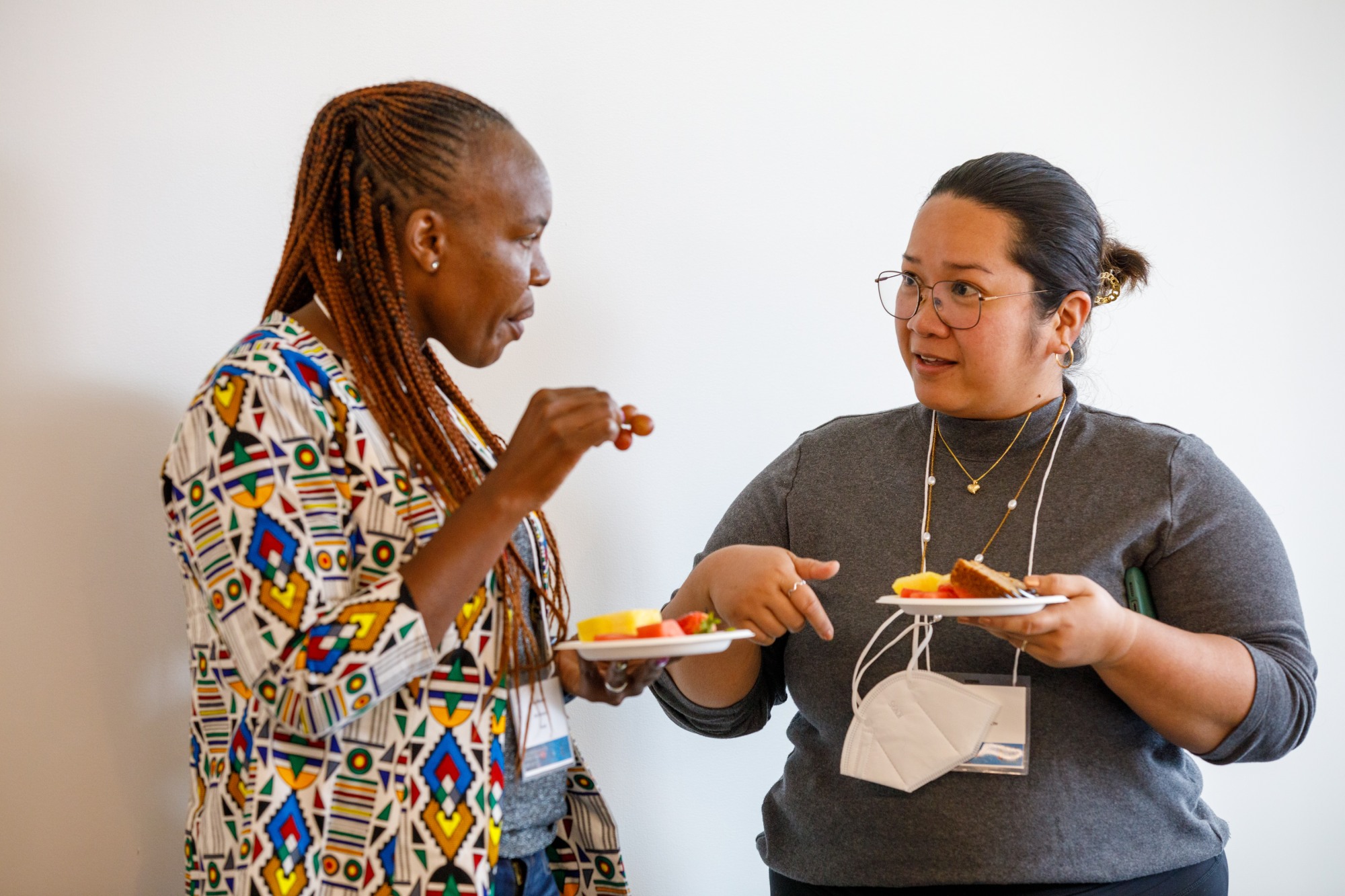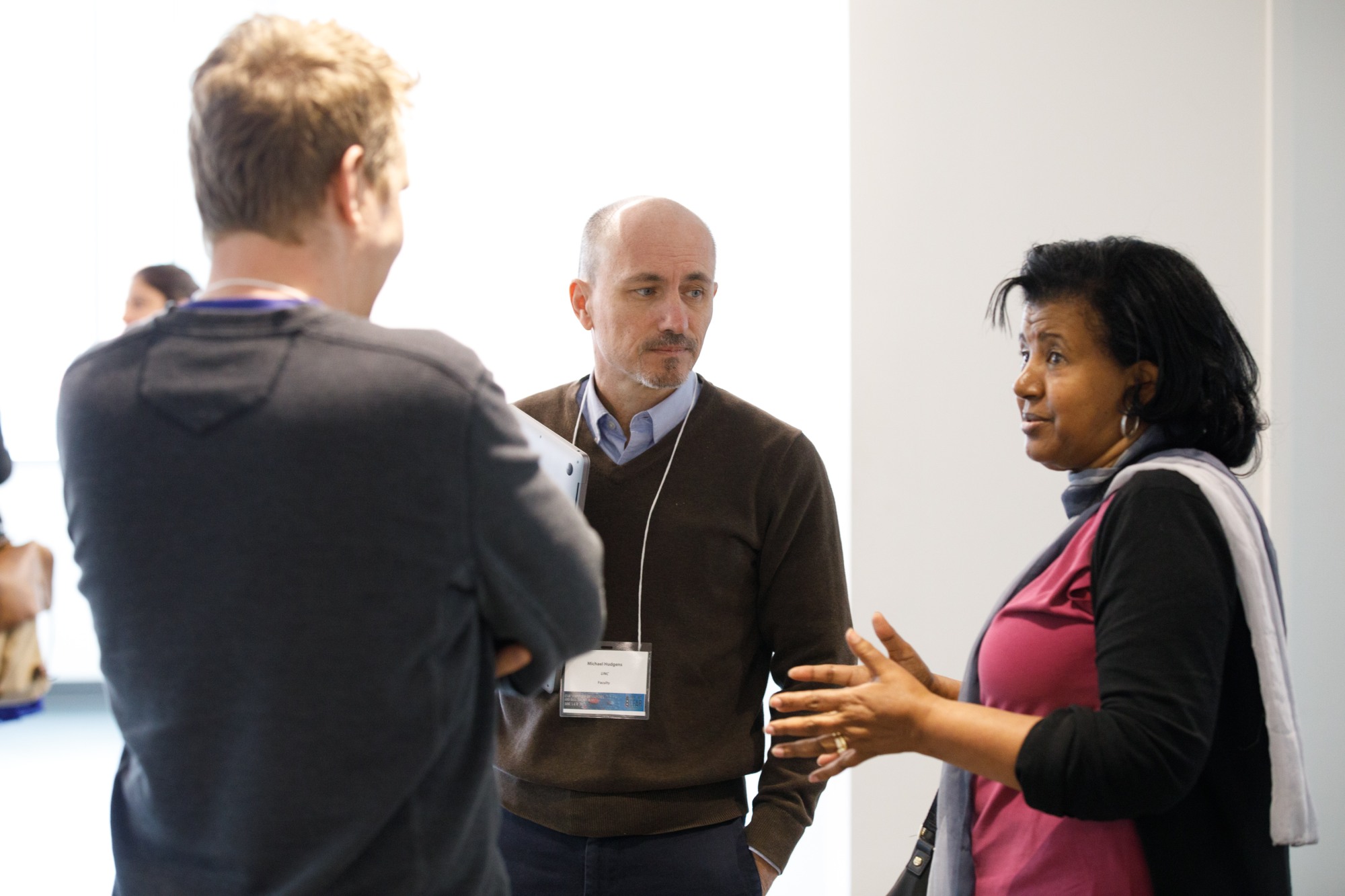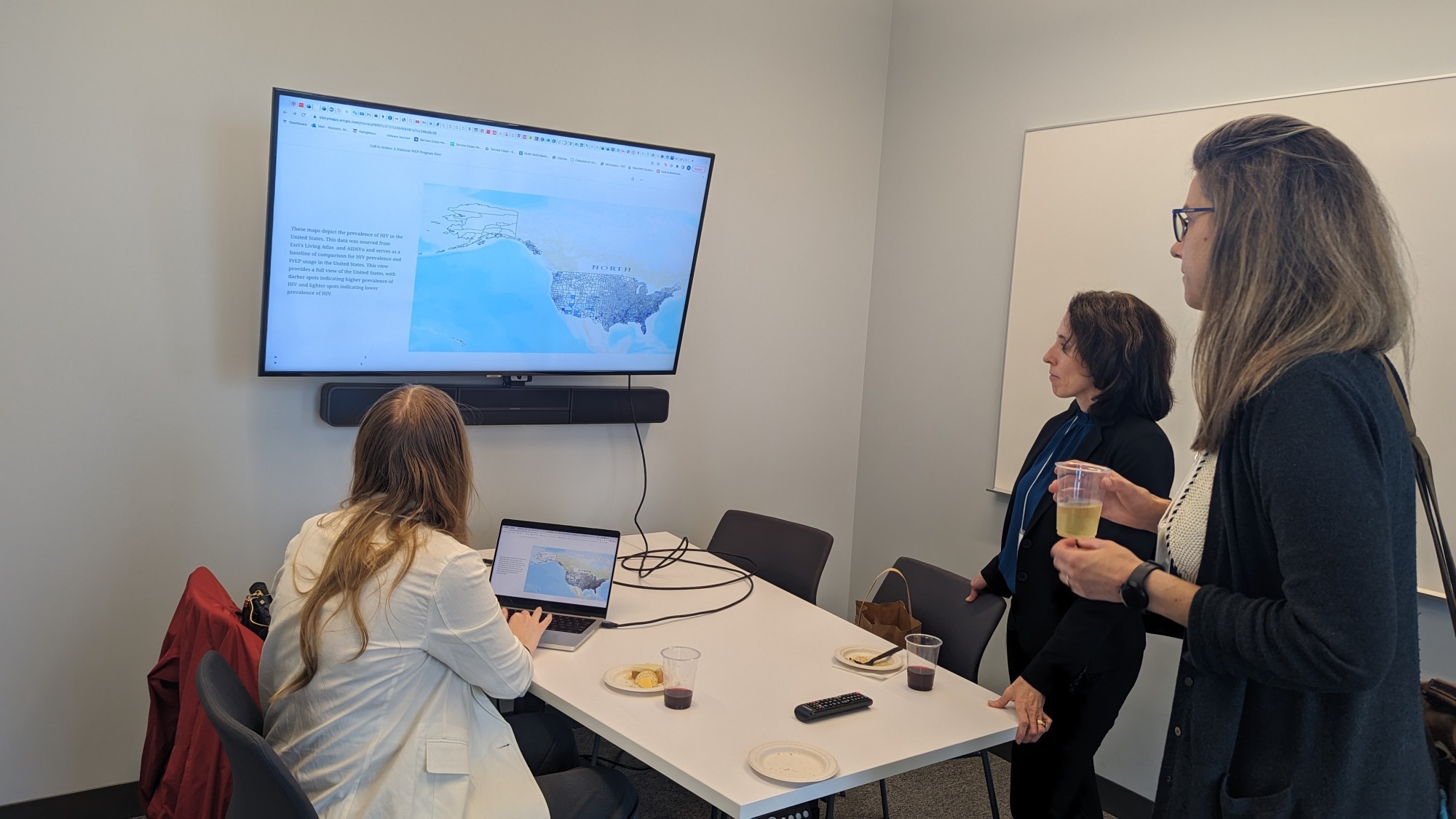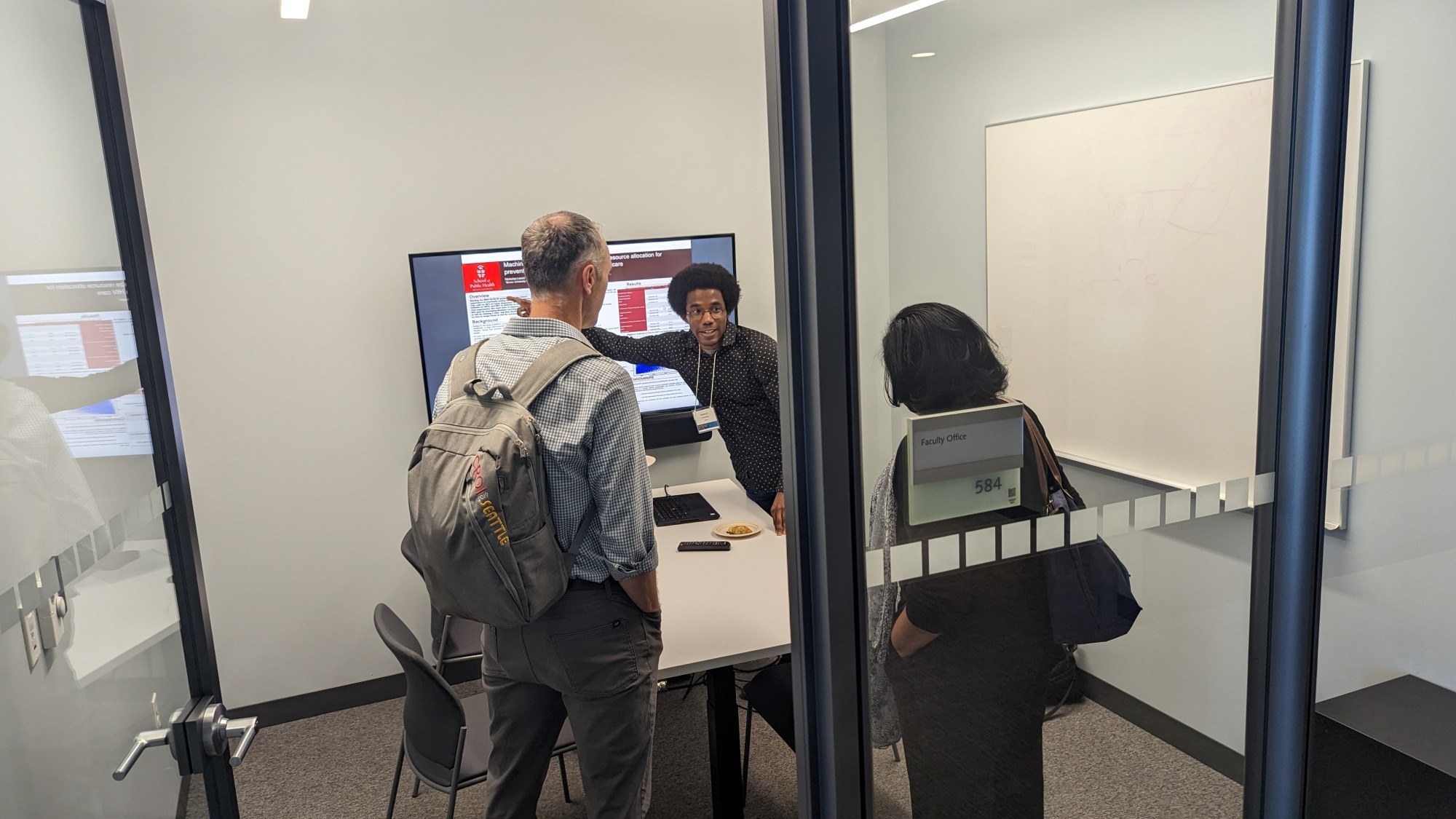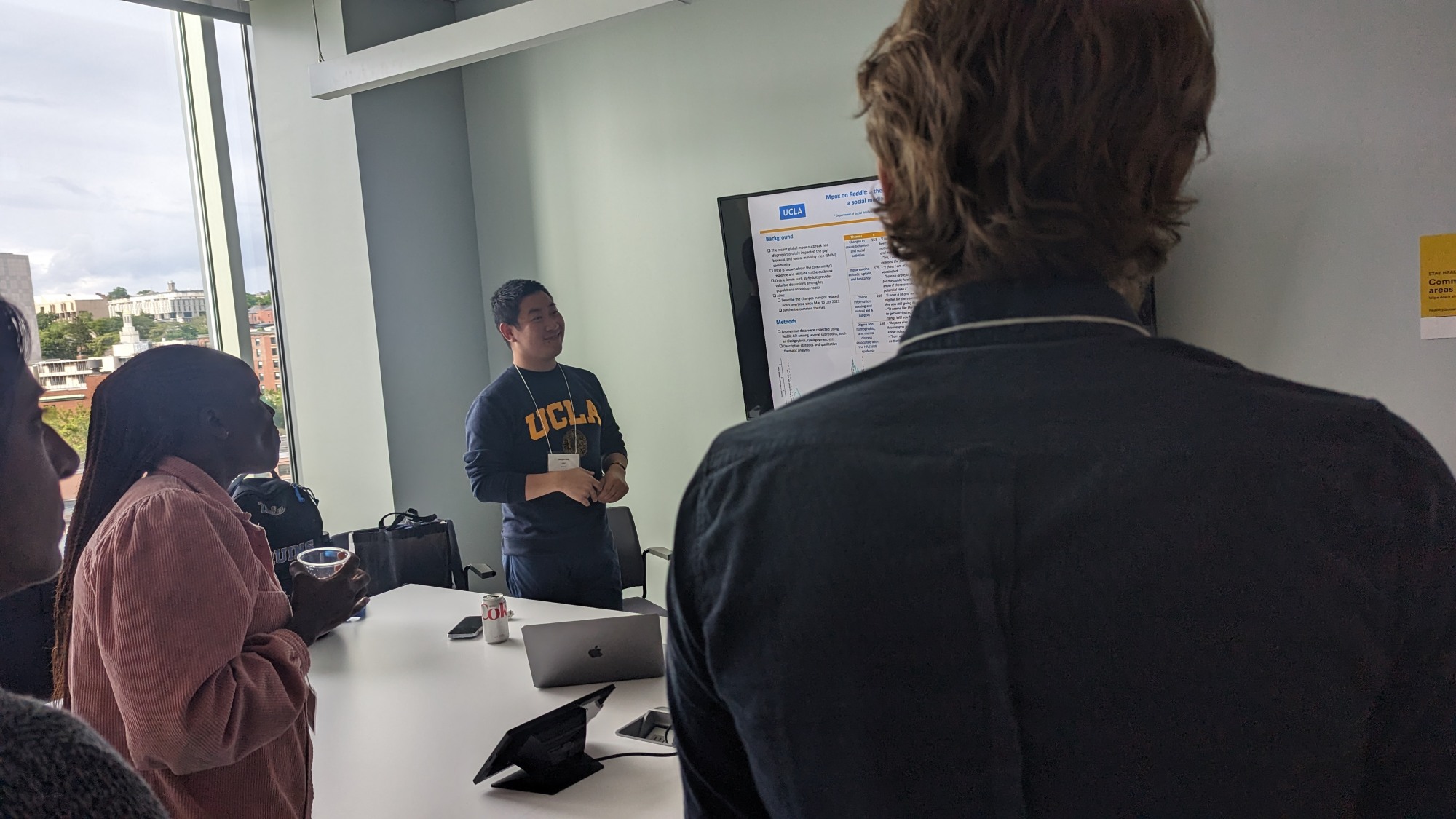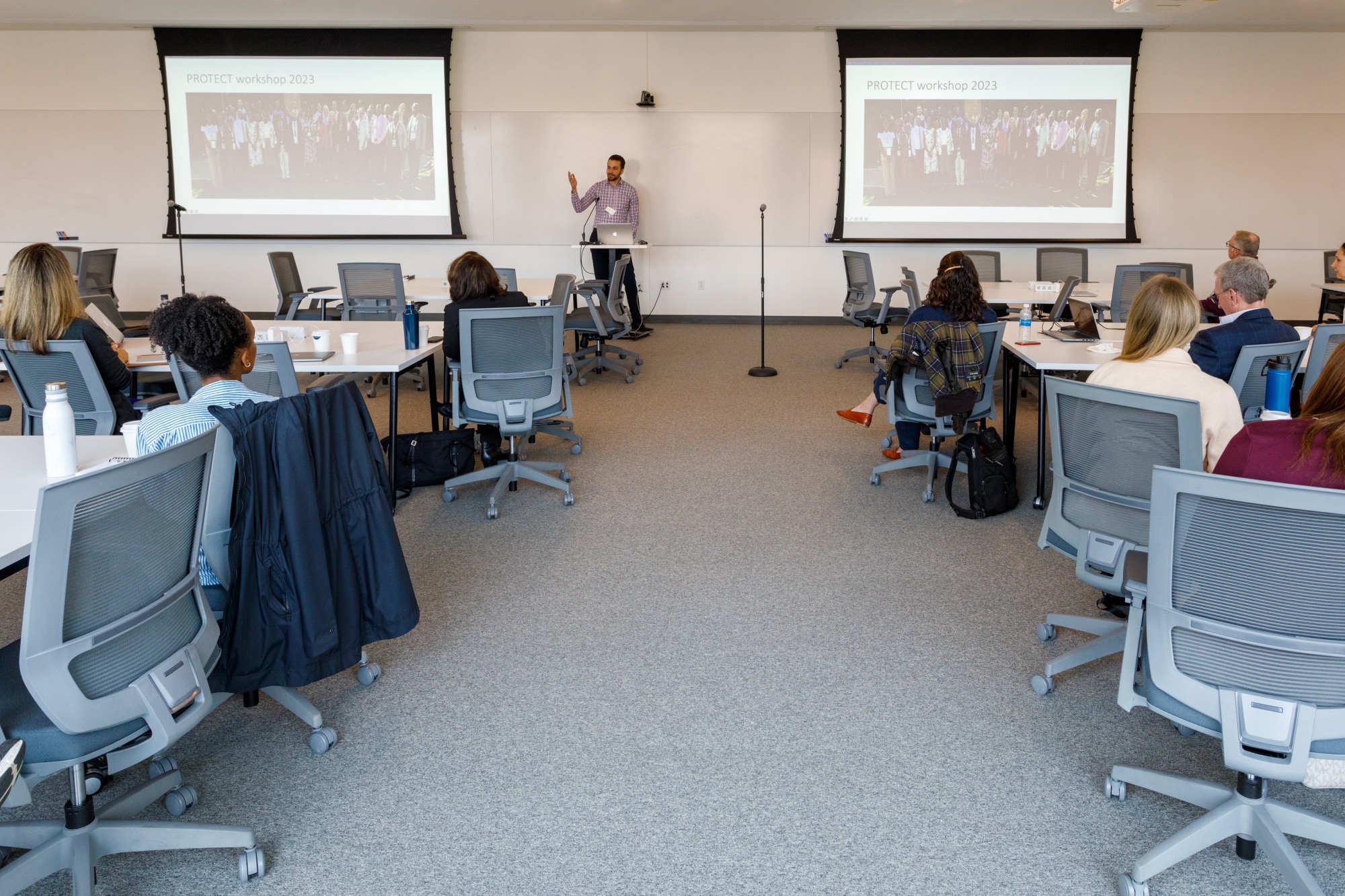| Session 1: Health equity and social determinants of health |
| Rumi Chunara |
Associate Professor of Biostatistics, Associate Professor of Computer Science and Engineering, Tandon, Director of Center for Health Data Science at NYU |
Data Science and Social Determinants |
| Kayo Fujimoto |
Professor in Social Determinants of Health, UT Health Science Center at Houston |
Network Analysis and Blockchain Empowering Future HIV Research to Address Health Inequity |
| Forrest Crawford |
Associate Professor of Biostatistics, Statistics & Data Science, Operations, and Ecology & Evolutionary Biology at Yale University |
Reconstructing the dynamics of the HIV outbreak and response in Scott County, Indiana: a case study in public health data and decision making |
|
Session 2: Biostatistics and Data Science at the NIH
|
| Misrak Gezmu |
National Institutes of Health |
Strengthening biostatistics resources in sub-Saharan African Countries |
| Carolyn Williams |
National Institutes of Health |
The data analysis cascade: from data creation to extraction of knowledge |
| Lori Scott-Sheldon |
National Institutes of Health |
NIMH Division of AIDS Research: Priorities, Strategies, & Research Interests in Data Science |
| Session 3: Pattern discovery and causal inference |
| Sarah Holte |
Affiliate Professor, Global Health Principal Staff Scientist, Fred Hutchinson Cancer Research Center |
Detection of Anomalies in Real Time Surveillance (DARTS) of Infectious Diseases |
| Raji Balasubramanian |
Associate Professor at UMass Amherst |
Estimating ART effects on time to DNA PCR test positivity in infants infected with HIV |
| Jon Steingrimsson |
Assistant Professor of Biostatistics, Director of the NEXTGEN Graduate Program in Biostatistics, Brown |
Tree-based Subgroup Discovery In Electronic Health Records: Heterogeneity of Treatment Effects for DTG-containing Therapies: |
| Keynote & Discussion: |
| Research Equity in Global Health: Special considerations for the fields of statistics and data science |
| Bethany Hedt-Gauthier |
Associate Professor of Global Health and Social Medicine and Associate Professor in the Department of Biostatistics, Harvard T.H. Chan School of Public Health |
| Poster Session |
| Amos O. Okutse |
Brown University School of Public Health |
Machine learning methods for bias correction and precision optimization using covariate adjustment in randomized trials with missing data. |
| Chenglin Hong |
Department of Social Welfare, University of California Los Angeles |
Mpox on Reddit: a thematic analysis of online posts on mpox on a social media platform among key populations |
| James Gesualdi |
Department of Basic and Translational Sciences, Penn Dental Medicine, University of Pennsylvania |
A transcriptomic meta-analysis of published iPSC-derived microglia protocols reveals ideal methodology for modeling HIV infection in the CNS |
| Lauren O’Connor & Morgan Byrne |
George Washington University |
Characterizing Engagement in Care and STI Screenings among DC Cohort Participants with HIV and Mpox |
| Masha Morozov |
University of Pennsylvania Center for AIDS Research Community |
Call to Action: A National PrEP Program Now - A GIS Approach to Assessing HIV Prevalence and Mortality in the United States in Relation to Access to Resources |
| Neal D. Goldstein |
Drexel University Dornsife School of Public Health |
Imputing Population HIV Viral Load Through Single-center Clinic Electronic Health Records |
| Nickolas Lewis |
Department of Biostatistics, Brown University |
Machine learning algorithms to optimize resource allocation for preventing patient loss to follow up in HIV care |
| Yufei Yan |
Department of Biostatistics, Brown University |
Analysis of an alcohol use intervention (ReACH) study: factorial design, orthogonal contrasts, incomplete data, and model selection |
